Art World
Meet the 6 Rising-Star Artists Competing for the Coveted $100,000 Hugo Boss Prize
The award comes with $100,000 and a solo exhibition at the Guggenheim.
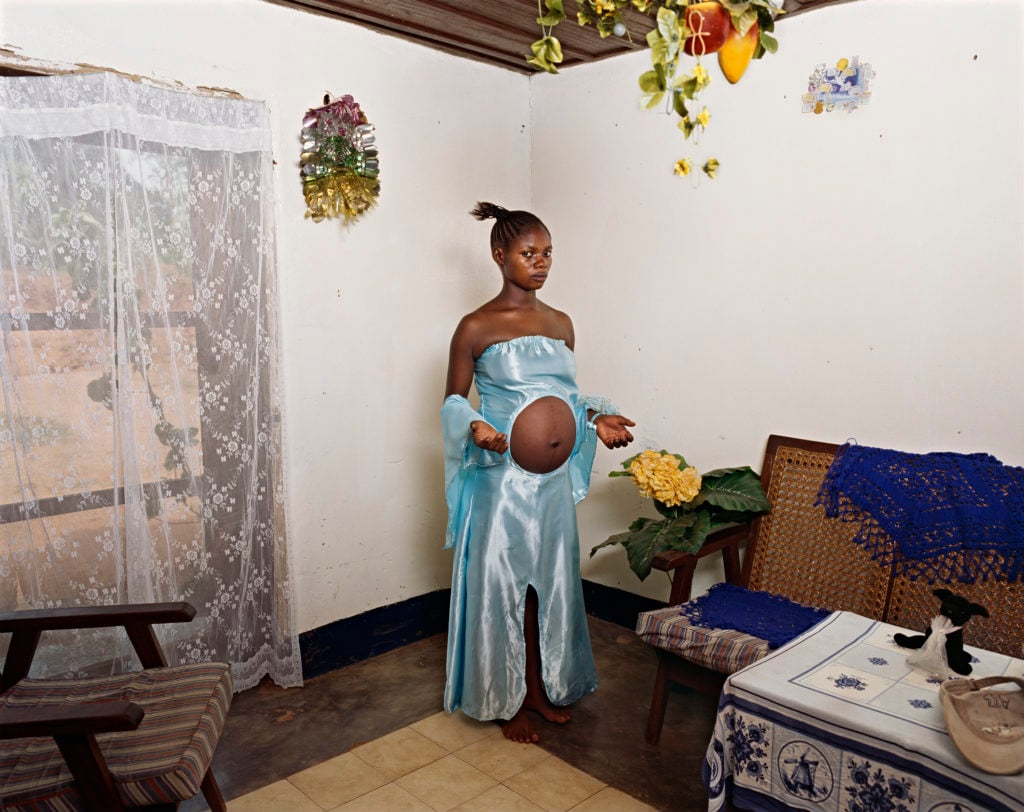
The award comes with $100,000 and a solo exhibition at the Guggenheim.

Maxwell Williams

It’s award season at the Guggenheim, where they’ve just announced the finalists for the 13th Hugo Boss Prize, given biannually to an artist regardless of age or nationality. This year’s finalists are Nairy Baghramian, Kevin Beasley, Deana Lawson, Elias Sime, Cecilia Vicuña, and Adrián Villar Rojas.
In addition to receiving a $100,000 award, the winner of the prize—which is administered by the Solomon R. Guggenheim Foundation and sponsored by the German fashion label Hugo Boss—will also be given a solo exhibition at the Guggenheim Museum. (2010’s winner, Hans-Peter Feldmann, responded to the honor with trademark irreverence: His exhibition was composed of 100,000 dollar bills stuck to the gallery’s walls.)
Simone Leigh was the winner of the 2018 Hugo Boss Prize; other past winners include Matthew Barney, Emily Jacir, Rirkrit Tiravanija, Anicka Yi, and Paul Chan. The museum will announce the winner of this year’s prize in the fall of 2020, with the subsequent exhibition to follow in the spring of 2021.
“After a rigorous examination of today’s artistic landscape, the jury identified a group of artists whose practices are beacons of cultural impact,” Nancy Spector, the Guggenheim’s chief curator, and the prize’s jury chair, said in a statement. “While diverse in their approaches and themes, they each exemplify the spirit of experimentation and innovation that the prize has always championed.”
Below, we take a quick look at the six artists who are competing to be the next Hugo Boss Prize winner.
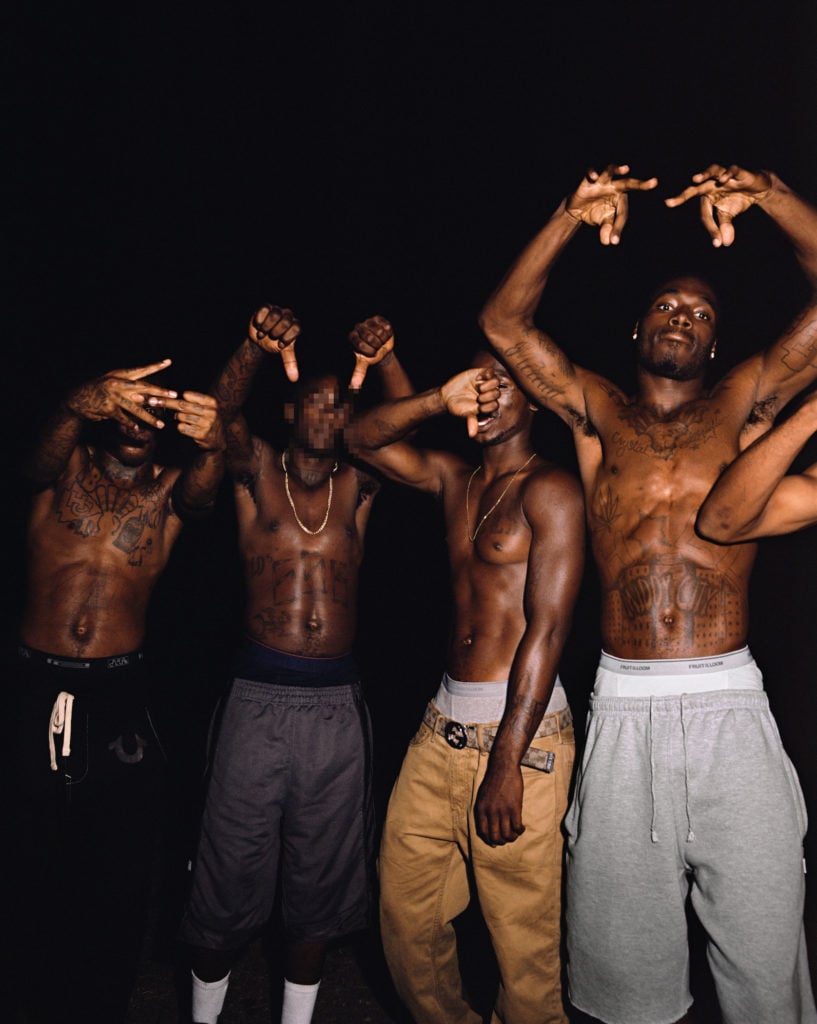
Deana Lawson, Signs (2016). Image courtesy of the Artist and Sikkema Jenkins & Co.
Born in Rochester, New York in 1979, Deana Lawson lives in New York, where she creates vivid, staged photographs of the people in her life. Her work included in the 2017 Whitney Biennial showcased many of Lawson’s themes: intimate portraiture that feels familiar but uncanny. She’s had solo exhibitions at places such as the Museum voor Fotografie, Amsterdam (2019), The Underground Museum, Los Angeles (2018), and Carnegie Museum of Art, Pittsburgh (2018).
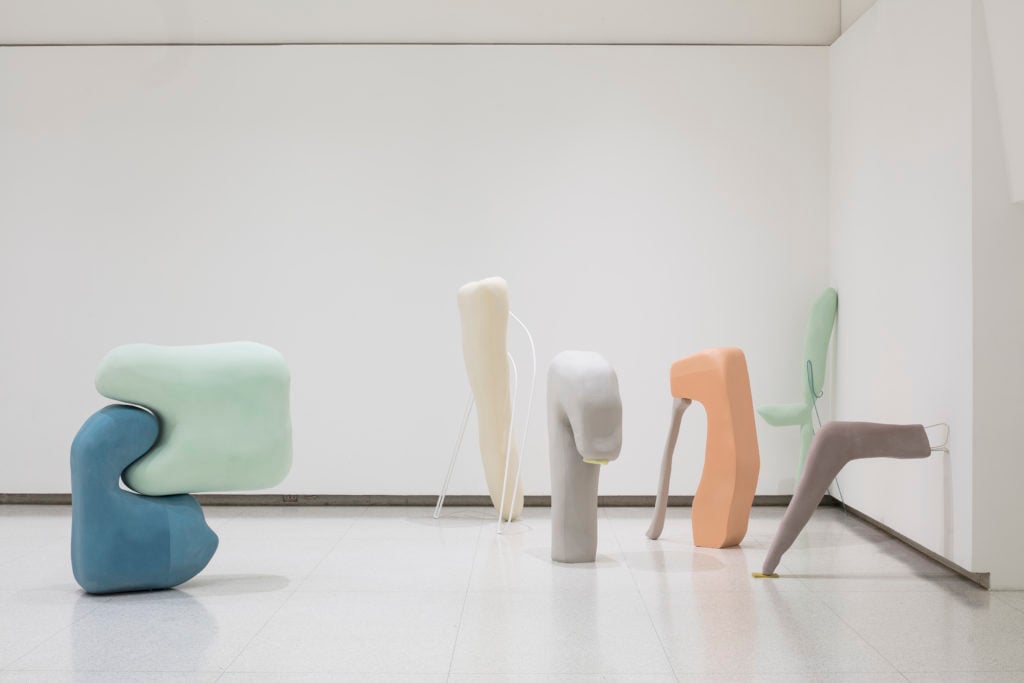
Nairy Baghramian, Stay Downers: Nerd, Fidgety Philip, Dripper, Truant, Backrower and Grubby Urchin (2017). Courtesy of the artist and Marian Goodman Gallery. Photo: Timo Ohler.
Born in 1971 in Iran, Nairy Baghramian lives in Berlin, where she creates sculptures and installations like Maintainers (F) (2019) and Sitzengebliebene/Stay Downers (2017) that resemble amorphous, abstract living rooms, right down to the pastel colors. Baghramian has had solo exhibitions at Mudam Luxembourg—Musée d’Art Moderne Grand-Duc Jean (2019), Palacio de Cristal del Retiro, Madrid (2018), and the Walker Art Center, Minneapolis (2017).
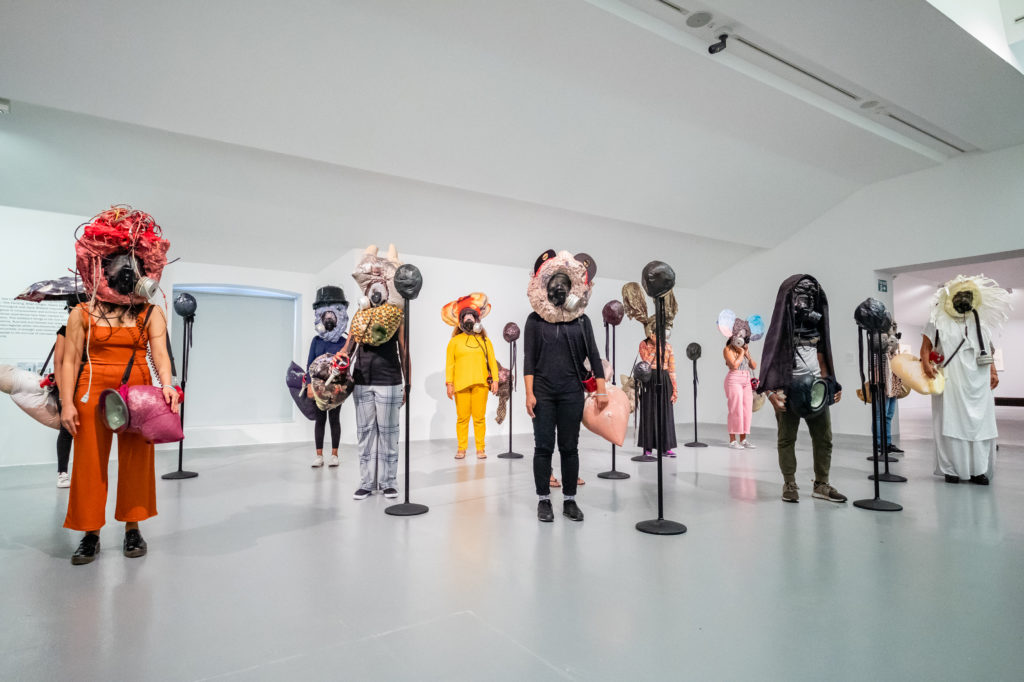
Kevin Beasley, Your face is / is not enough (2016). Performance view: Liverpool Biennial, July 14, 2018. © Kevin Beasley. Courtesy of Casey Kaplan, New York. Photo: Pete Carr.
Kevin Beasley was born in Lynchburg, Virginia in 1985, and lives in New York. His solo show earlier this year at the Whitney, “A view of a landscape,” featured an immersive installation, with a giant cotton-gin motor used to generate sound. Beasley often incorporates personal recollections and experiences in his work; the Whitney show also referenced his family’s own land in the American South. His resume also includes solo shows at institutions including the Kitchen (2019) and the Institute of Contemporary Art, Boston (2018).
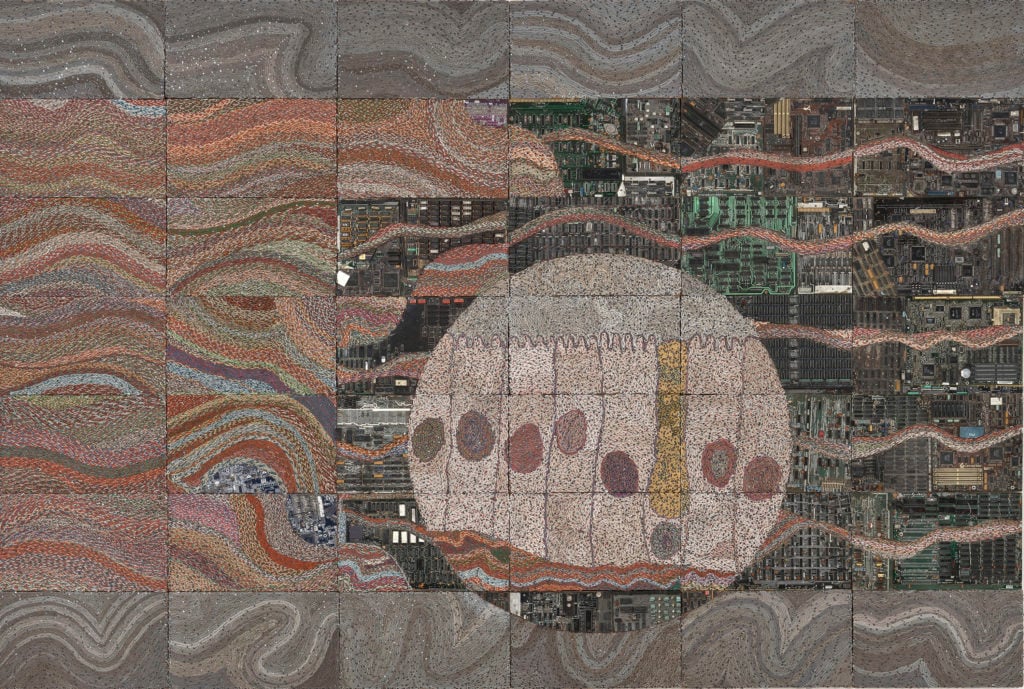
Elias Sime, Tightrope: Internalized (2017). Courtesy of the artist and James Cohan, New York.
Elias Sime was born and still lives in Addis Ababa, Ethiopia, where he creates collages and assemblages from found materials (like e-waste, and salvaged objects bought from local markets). His work Tightrope: Impulsive Juggernaut of Progress (2017), for instance, portrays a mountain made of circuit boards and reclaimed wires that directly challenge the viewer to look at the waste that is the byproduct of consumer electronics. He has had multiple exhibitions at James Cohan in New York, along with solo exhibitions at the Zoma Museum (which Sime co-founded), Addis Ababa (2019), GRIMM, Amsterdam (2018), and the Santa Monica Museum of Art (2009). His museum presence is also gaining steam: A major traveling survey of his work is on view now at the Wellin Museum of Art at Hamilton College (through December 8) and, in 2020, he will be the subject of a solo show at the Saint Louis Art Museum.
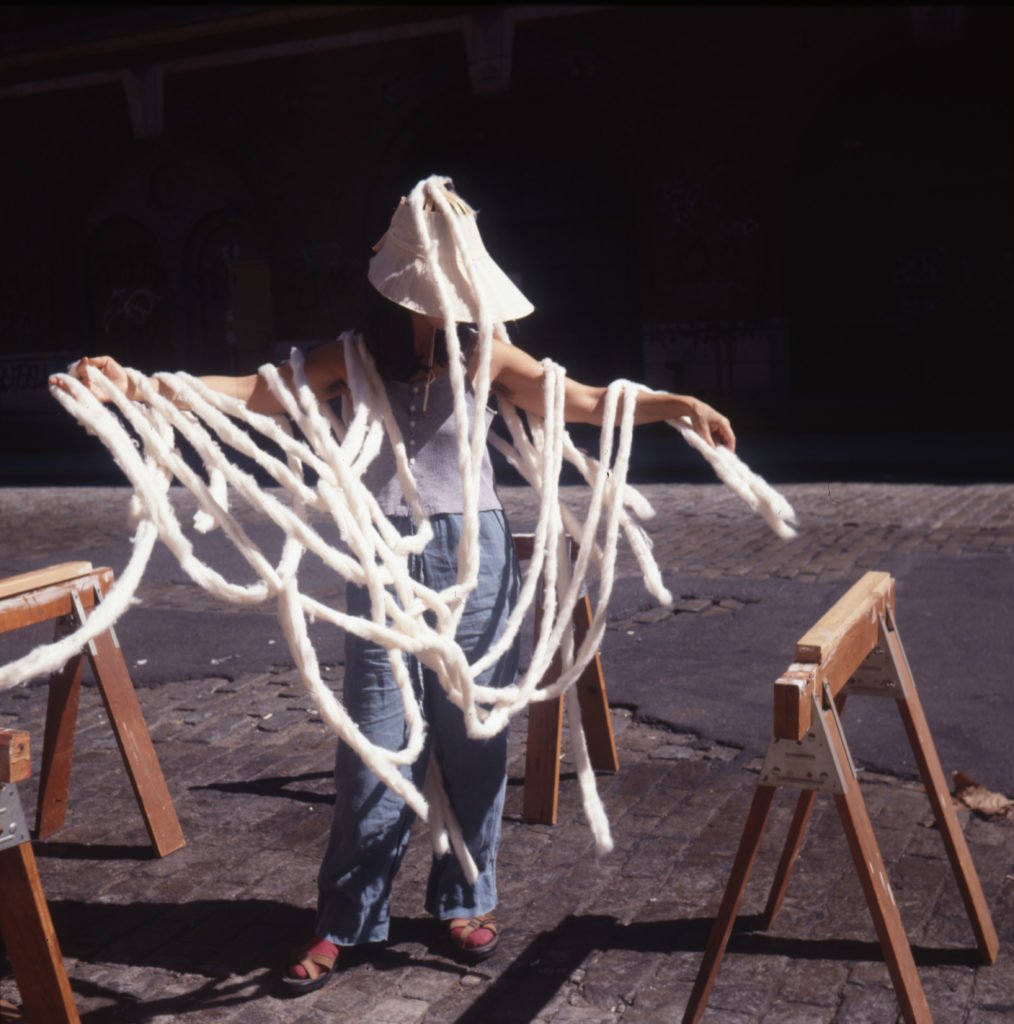
Cecilia Vicuña, Cloud Net (1999). Courtesy of the artist and Lehmann Maupin, New York, Hong Kong, and Seoul.
Born in Santiago, Chile in 1948, Cecilia Vicuña works in New York and Santiago, where she makes poetry, films, and sculptures (which she calls “precarious art”). The Guggenheim already has one of her paintings in their collection, an oil painting of Karl Marx she made in 1972 as part of her “Heroes of the Revolution” series. Vicuña exhibited at MoMA in the ‘80s, and lately she has had solo exhibitions at institutions such as the Witte de With Center for Contemporary Art, Rotterdam (2019), Wexner Center for the Arts, Columbus, Ohio (2019), and the Brooklyn Museum, New York (2018).
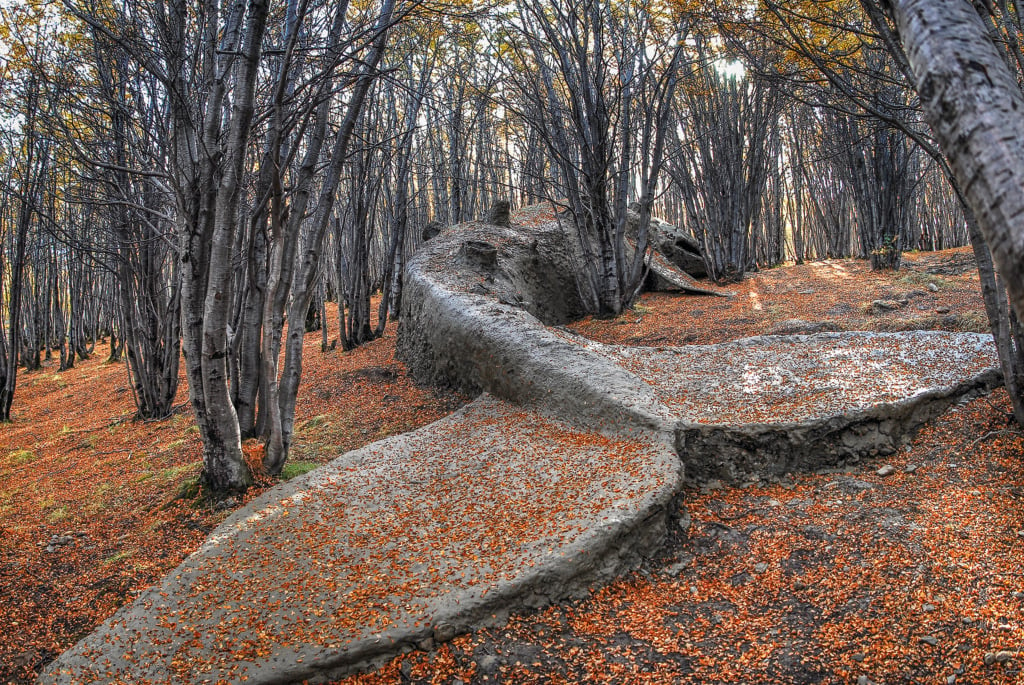
Adrián Villar Rojas, Mi familia muerta (My Dead Family) (2009). Courtesy of the artist, Ruth Benzacar Art Gallery, kurimanzutto, and Marian Goodman Gallery.
Adrián Villar Rojas was born in Rosario, Argentina in 1980, and he splits his time between there and New York. He creates site-specific installations and environments from materials both organic and synthetic that change and decay over the course of his exhibitions. His ambitious installation at the 2015 Istanbul Biennial, The Most Beautiful of All Mothers, featured a menagerie of animals—some cast in fiberglas, others using organic material that was doomed to decompose. The epic work was displayed on the beach in front of Leon Trotsky’s former home on Prince Island in the Sea of Marmara. Rojas has had solo exhibitions at museums and institutions including Tank Shanghai (2019), the Geffen Contemporary at MOCA, Los Angeles (2017), and the Metropolitan Museum of Art, New York (2017).